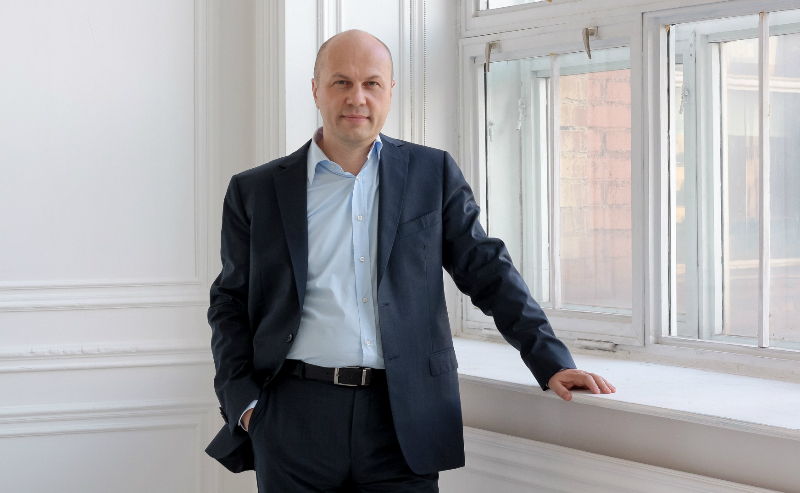
The cycle of prohibitions: how to stop the regulatory guillotine from becoming a mockery
Public officials will inevitably overstate the benefits of regulation while private business will exaggerate the costs. Therefore, reformers need to agree on a system for gauging the consequences of either revoking or preserving current rules.
Expert opinion - Daniil Tsygankov to RBC.

Higher School of Economics experts to analyse regulatory costs in the Russian fishing industry for the regulatory guillotine mechanism
On 11 July 2019, at the III Global Fishery Forum in Saint-Petersburg, NRU HSE and the All-Russian Association of Fish Breeders, Entrepreneurs and Exporters (VARPE) announced the continuation of their collaboration to study the regulatory framework in the fishing industry. The new research is associated with the recent initiative of the Russian Government to alter the image of control and oversight in Russia using the regulatory guillotine mechanism.
Excessive State Control in the Fishing Industry
State control measures governing fish production in Russia are excessive: they hinder effective delivery of produce to ports, render the registration of freight consignments more difficult and complicate vessel operation. These are the findings of analysts from the Higher School of Economics (HSE). Total losses in the sector from shortcomings in regulation might reach RUB 17 billion a year and yet control measures continue to tighten.
Director of the Regulatory Impact Assessment Centre at IPAG NRU HSE Daniil Tsygankov addresses an RZD-Partner business breakfast
The business breakfast was titled “The impact of regulatory assessment on business and the possibility of effective collaboration with natural monopolies and regulatory authorities”.
Representatives of the Federal Antimonopoly Service, Russian Railways, leading Russian companies from the industry, analysts, experts, operators and logisticians came together around one table,
where they exchanged opinions on the dangers of artificial intervention of regulatory authorities in a competitive market and regulatory changes that have a negative impact on doing business, including in the transport sector. They also recommended intelligent approaches to prepare for antimonopoly proceedings and how to win cases in court by appraising methodology and typical errors made.
Joint regulatory policy report by the Centre for Strategic Research and NRU HSE released in English
On 15 November 2018, an abridged, English-language version of a joint CSR and HSE report was published, titled “Regulatory Policy in Russia: Main Trends and Architecture of the Future”. The last report of this kind and this magnitude was prepared by the OECD back in November 2005.
Higher School of Economics experts study the impact of state regulation in the fishing industry
Alongside fiscal and monetary policies, regulatory policy is one of the three key tools of governance that influence economic growth. A recent report by the Centre for Strategic Development and NRU HSE, “Regulatory Policy in Russia: key trends and the architecture of the future” points to the need for measures to reinforce evidence-based regulation, transparency in discussions an expansion of the RIA procedure on the full cycle of Russian rule-making assessment. Examples of over-regulation in a number of sectors have also been considered.

Regulatory policy: how does it work?
On 23rd July, a new programme was released as part of the Topical E-Commerce cycle on Radio Mediametrix, entitled “Regulatory policy: How does it work?”
Director of the RIA Centre at NRU HSE Daniil Tsygankov and the New Regulatory Policy project coordinator at the Centre for Strategic Development Mikhail Komin discussed how new laws come into being and what route they take from conception to adoption, who can influence their value and importance for society, how this is done and at what stage, and how public institutions and organisations can influence law-making and lobbying interests.
Effective adjustment of regulatory policy in Russia could increase GDP by up to 1.5 to 2.5% a year
Regulatory policy, alongside monetary and budgetary policy, is a key driver of economic growth. Intelligent use of this public governance tool could increase GDP by up to 1.5 to 2.5% a year and also enhance the employment rate, labour productivity, entrepreneurial and innovative activity. This is the conclusion of the authors of the report, titled “Regulatory policy in Russia: key trends and the architecture of the future”, prepared by the Centre for Strategic Development and the Higher School of Economics.
The objective of the report is not only to set out the key problems facing the regulatory environment, but also to draw up proposals for its improvement over the course of 2018–2024. Recommendations for publishing have been compiled allowing for the latest scientific developments and in accordance with best international practices.
HSE hosts a specialist workshop, devoted to regulatory standards
RIA Centre Director Daniil Tsygankov spoke at the specialist seminar “Standards in evidencing the need for regulation: international experience and prospects of introduction in Russia”, held at NRU HSE on 29 March.

Russian law-making needs both a regulatory axe to wield and experimentation
Governments have eventually come to realise, that they can no longer take for granted the designs of a growing number of industry regulators. The need had arisen to organise a systematic analysis of the laws and regulations before they come into force. The most well-known mechanism that has become established almost universally, including Russia itself in recent years, is regulatory impact analysis (assessment). In an interview for the "Russia of the Future: 2017 → 2035" project, Director of the Regulatory Impact Assessment Centre of IPAM NRU HSE Daniil Tsygankov talks about the features and implementation of RIA.
